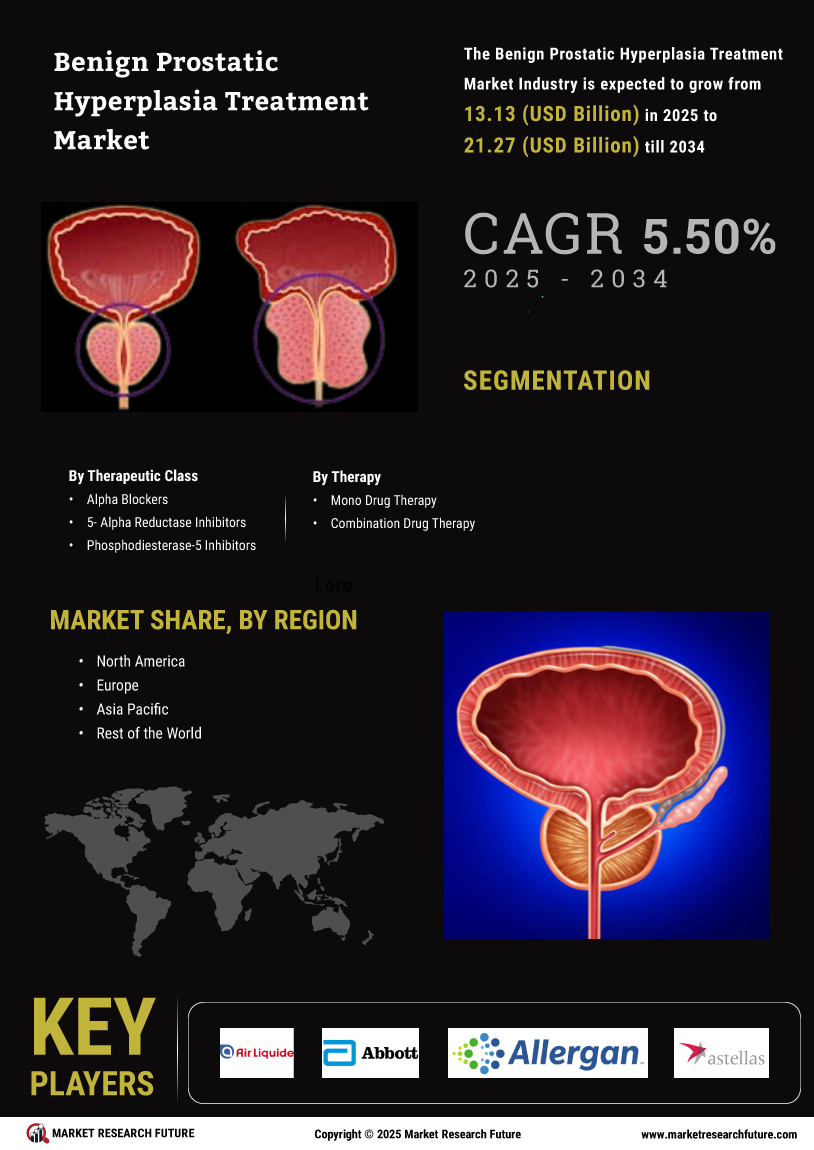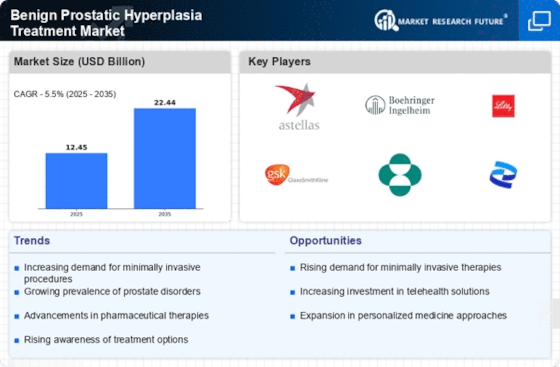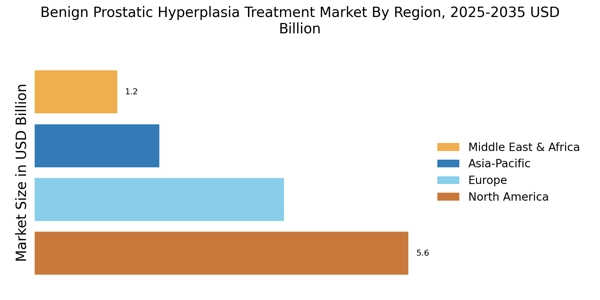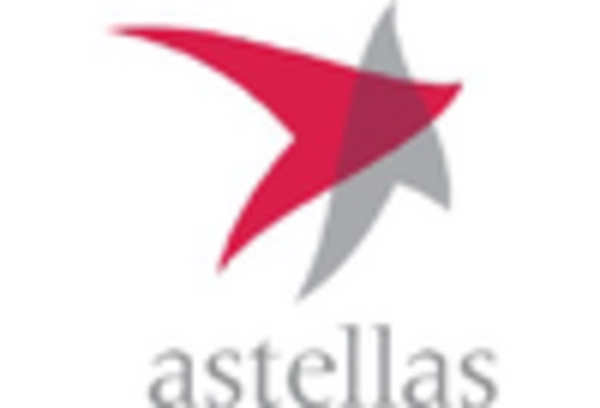Rising Healthcare Expenditure
The increasing healthcare expenditure across various regions is significantly influencing the Benign Prostatic Hyperplasia Treatment Market. As governments and private sectors allocate more resources to healthcare, there is a corresponding rise in the availability of advanced treatment options for BPH. This trend is particularly evident in developed economies, where healthcare budgets are expanding to accommodate innovative therapies and technologies. The willingness of patients to invest in their health, coupled with insurance coverage for BPH treatments, is likely to enhance market growth. Consequently, the Benign Prostatic Hyperplasia Treatment Market stands to benefit from this upward trajectory in healthcare spending, as more individuals seek timely and effective interventions.
Advancements in Treatment Modalities
Innovations in treatment modalities are playing a crucial role in shaping the Benign Prostatic Hyperplasia Treatment Market. The introduction of new pharmacological agents, such as alpha-blockers and 5-alpha-reductase inhibitors, has expanded the therapeutic options available for patients. Additionally, minimally invasive procedures, including laser therapy and transurethral resection of the prostate, are gaining traction due to their effectiveness and reduced recovery times. The market is anticipated to benefit from ongoing research and development efforts aimed at enhancing treatment efficacy and patient outcomes. As these advancements continue to emerge, they are likely to attract more patients seeking effective solutions for BPH, thereby propelling the growth of the Benign Prostatic Hyperplasia Treatment Market.
Growing Awareness and Education Initiatives
The Benign Prostatic Hyperplasia Treatment Market is witnessing a surge in growth driven by increased awareness and education initiatives surrounding BPH. Healthcare organizations and advocacy groups are actively promoting information about the condition, its symptoms, and available treatment options. This heightened awareness is encouraging men to seek medical advice and treatment sooner, which is crucial for effective management of BPH. Educational campaigns are also addressing the stigma associated with prostate health, leading to a more open dialogue about the condition. As awareness continues to rise, it is expected that more patients will engage with healthcare providers, thereby contributing to the expansion of the Benign Prostatic Hyperplasia Treatment Market.
Aging Population and Rising Incidence of BPH
The Benign Prostatic Hyperplasia Treatment Market is experiencing growth due to the increasing prevalence of BPH among the aging population. As men age, the likelihood of developing BPH rises significantly, with studies indicating that nearly 50% of men aged 50 and older may experience symptoms. This demographic shift is expected to drive demand for effective treatment options, including medications and surgical interventions. The market is projected to expand as healthcare providers seek to address the needs of this growing patient population. Furthermore, the rising awareness of BPH and its impact on quality of life is likely to encourage more individuals to seek treatment, thereby contributing to the overall growth of the Benign Prostatic Hyperplasia Treatment Market.
Integration of Telemedicine in BPH Management
The integration of telemedicine into the management of BPH is emerging as a transformative factor in the Benign Prostatic Hyperplasia Treatment Market. Telehealth services are facilitating remote consultations, allowing patients to receive timely medical advice without the need for in-person visits. This is particularly beneficial for individuals in rural or underserved areas, where access to specialized care may be limited. The convenience and efficiency of telemedicine are likely to encourage more patients to seek treatment for BPH, thus expanding the market. As healthcare systems continue to embrace digital solutions, the Benign Prostatic Hyperplasia Treatment Market is poised for growth, driven by the increasing adoption of telehealth technologies.

















